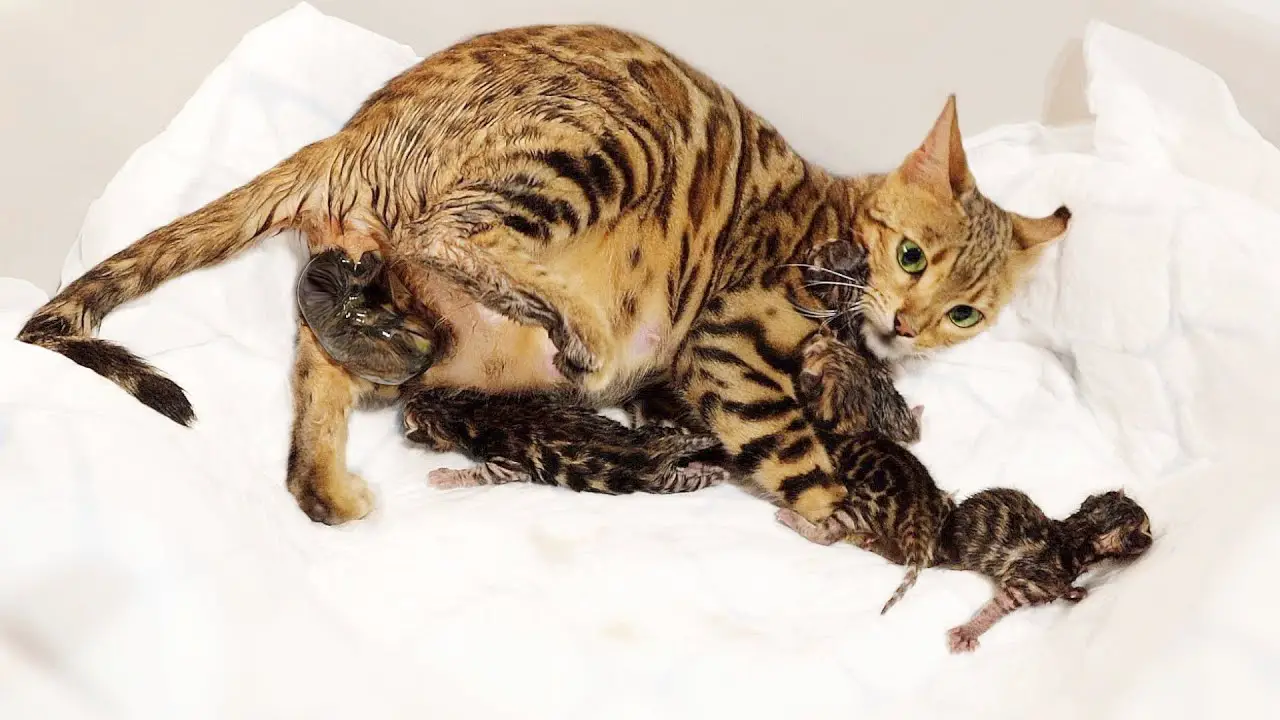Witnessing the arrival of newborn kittens is an extraordinary experience, filled with joy and responsibility. As a caretaker, it’s crucial to provide these fragile creatures with the necessary care and attention to ensure their survival and well-being. This comprehensive guide will equip you with the knowledge and steps to navigate the journey of caring for newborn kittens.

Image: london-blogcardenas.blogspot.com
Introduction and Importance
Newborn kittens are exceptionally vulnerable, relying heavily on their mothers and human guardians for sustenance and protection. Understanding their unique needs and providing appropriate care is essential for their healthy development and future well-being. Neglecting their care can lead to health complications, stunted growth, and even loss of life. That’s why it’s imperative to be well-informed and prepared to provide the best possible care for these precious lives.
Umbilical Cord Care
Once the kittens are born, they must be separated from the placenta. Use clean scissors to gently cut the umbilical cord about an inch from the kitten’s belly button. Dip the tip of the cord in iodine to prevent infection. Avoid pulling or tugging on the cord, as this could cause pain or damage to the kitten.
Nursing and Feeding
The most vital aspect of kitten care is ensuring they receive adequate nutrition. Initially, kittens will rely solely on their mother’s milk, which provides them with essential nutrients and antibodies. However, not all mothers are able or willing to nurse their young. In such cases, it is necessary to provide supplemental bottle-feeding to the kittens.
Use a kitten-specific milk formula and follow the manufacturer’s instructions for preparation. Never use cow’s milk or other human milk products, as they can cause digestive problems. Feed kittens every 2-3 hours for the first few weeks, adjusting the frequency as they grow.

Image: insidemydream.com
Bathing and Grooming
Newborn kittens do not require regular baths, as excessive bathing can strip their skin of natural oils. However, occasional spot cleaning may be necessary if they are soiled. Use a damp washcloth dipped in warm water to gently wipe away any dirt or debris.
To keep their fur clean, use a soft-bristled brush to groom them once or twice a day when they are older. This will help prevent matting and stimulate blood circulation.
Litter Box Training
As kittens become mobile, it is important to introduce them to a litter box as soon as possible. Place a shallow litter box with unscented, clumping litter in a quiet and accessible location. Gently place the kittens in the box after they have eaten to encourage them to associate it with elimination.
Socialization and Enrichment
Socialization is crucial for kitten development, ensuring they become well-adjusted and friendly cats. Handle the kittens regularly, exposing them to different experiences, sights, and sounds. Provide them with a variety of toys and activities to stimulate their playfulness, curiosity, and cognitive development.
Wellness Monitoring and Veterinary Care
Observe your kittens daily for signs of illness or distress. Check their eyes, ears, nose, and mouth for any discharge or inflammation. Monitor their breathing, heart rate, and temperature. If you notice any abnormalities, seek veterinary attention promptly.
Initial veterinary visits for newborn kittens should be scheduled as advised by your veterinarian for vaccinations, deworming, and general health checks. Follow the veterinarian’s instructions and recommendations for vaccinations and health maintenance throughout the kittens’ lives.
What To Do When Kittens Are Born
Conclusion
Caring for newborn kittens is a demanding but rewarding undertaking that requires patience, vigilance, and dedication. By following these comprehensive guidelines, you can provide them with the optimal care they need to thrive. Remember that every kitten is unique, and their individual needs and circumstances may vary. If you have any concerns or uncertainties, always consult with a qualified veterinarian for professional advice and guidance.

/GettyImages-1303637-two-way-mirror-57126b585f9b588cc2ed8a7b-5b8ef296c9e77c0050809a9a.jpg?w=740&resize=740,414&ssl=1)



